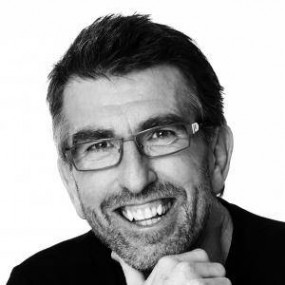All have turned away;
—Psalm 14:3
all alike have become corrupt.
There is no one who does good,
not even one.
I subscribe to behaviorist Jonathan Haidt’s After Babel Substack. It’s one of the more informative and lucid analyses of contemporary culture and society.
In today’s post, “On The Degrading Effects of Life Online,” Haidt talks about the brutal and sadistic postings we all have witnessed on social media. Every aspect of man’s inhumanity to man is viewable, and Haidt wonders about the corrosive effect of encountering this toxic stew hours at a time, every day, on the Internet.
It’s not just gross, sadistic acts either. Haidt cites another commenter, Freya India, who writes in her Substack GIRLS:
Most of the time when we talk about social media being bad for us we mean for our mental health. These platforms make us anxious, depressed, and insecure, and for many reasons: the constant social comparison; the superficiality and inauthenticity of it all; being ranked and rated by strangers. All this seems to make us miserable.
But I don’t just think it makes us miserable. I’ve written before about how it makes us bitchy. And self-absorbed. And over time I’m becoming convinced that our most pressing concern isn’t that social media makes us feel worse about ourselves. It’s that social media makes us worse people.
—Freya India, “What’s Become of Us?“
Many people will nod in agreement, but I want to propose a redemptive way that Christians can use this reality as an evangelistic talking point.
This is my take, and you may have your own, but I think the single biggest lie that has permeated modern society is the belief that people are inherently good. You’d be hard pressed to enter any conversation with nearly anyone, save for a conservative theologian, and convince them that at our core we human beings are sinful, with evil rooted in our very being.
Here’s the thing, though. EVERYBODY is aware of this online. Everyone has had a bad experience with a total stranger online. Everyone has seen garbage and filth posted by other people online. Everyone has a Facebook friend who has inexplicably turned on them like a mad dog for some seemingly innocent post or comment.
In short, original sin is on ample display online, and this verse is as true as it ever was:
For all have sinned and fall short of the glory of God…
—Romans 3:23
As an opportunity to talk about this truth and share Jesus with others, when someone brings up how people are inherently good, ask them whether social media confirms this or denies it. Ask what it means that “anonymous” people who could very well be a neighbor or coworker tear into complete strangers online, or post gruesome and degrading images, or brag about themselves, or do all manner of hateful, spiteful things under the lite cover of a username. Ask them if they’ve ever said anything they regret on social media.
In closing, I would offer this: We have a choice to be salt and light online or not.
I added this in the comments of the Haidt article:
“You can resist the urge to follow the crowd. Instead, you can choose to be a helper, to assist people, to offer hope and encouragement online. You can even reveal yourself not as a tower of strength but as someone who makes mistakes and whose life isn’t perfect. Every one of us can choose to be a genuine, positive, encouraging force online.”
Of course, the caveat on my statement is that sin-sick people can’t do this. You can’t be salt and light if you don’t know the One who is the source of that salt and light.
But then, that’s the challenge, isn’t it?
Image: Thomas Cole, Expulsion from the Garden of Eden (1828)


